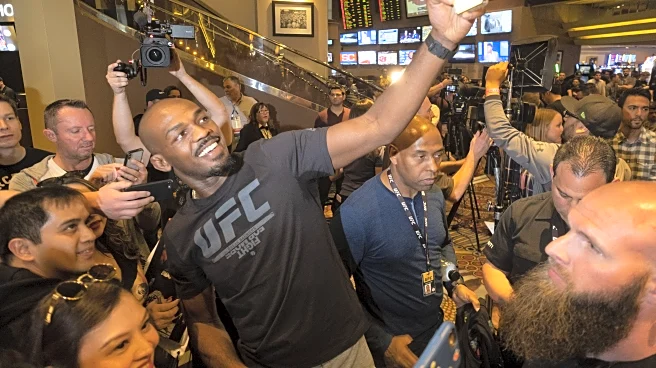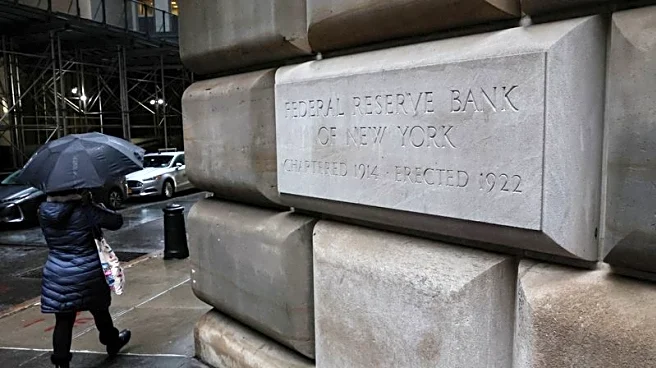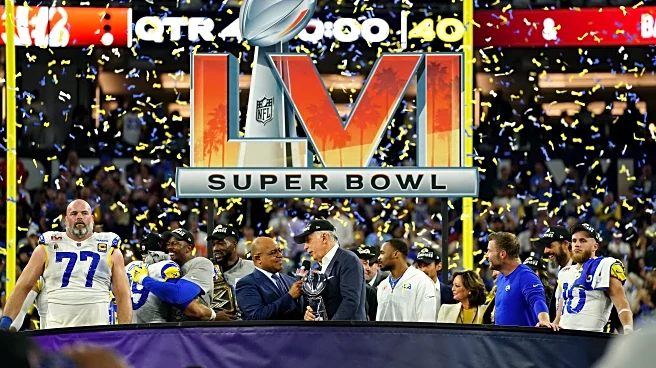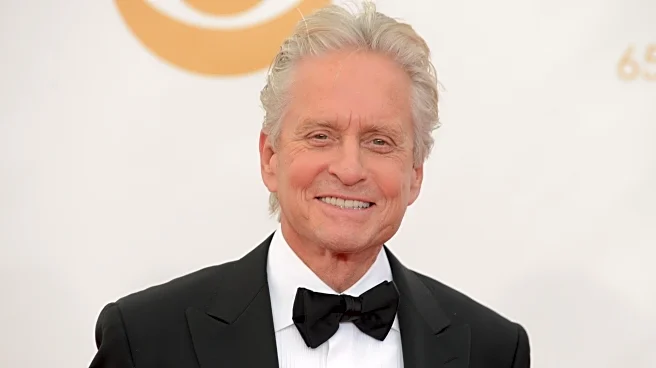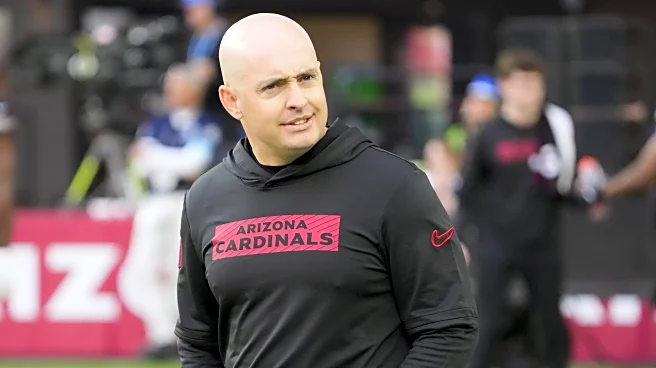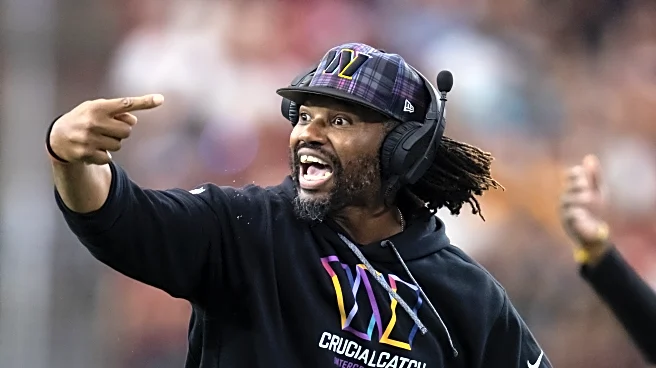What's Happening?
Jets owner Woody Johnson has made candid remarks about quarterback Justin Fields, who is expected to be replaced as the starting quarterback. Johnson's comments included a critique of Fields' performance, highlighting the challenges faced by the team
due to Fields' quarterback rating. This public criticism is unusual for an owner and has implications for General Manager Darren Mougey, who was responsible for signing Fields to a two-year, $40 million contract. Johnson's remarks also included support for coach Aaron Glenn, suggesting that the team's struggles are not solely the coach's responsibility. The situation is further complicated by the availability of other quarterbacks who were signed for less money, such as Daniel Jones and Mac Jones, raising questions about the decision-making process behind Fields' acquisition.
Why It's Important?
The public criticism from an NFL team owner regarding a player's performance is rare and can have significant implications for team dynamics and management. Woody Johnson's comments not only put pressure on Justin Fields but also on General Manager Darren Mougey, whose decision to sign Fields is now under scrutiny. This situation could lead to changes in the team's management or strategy, especially if the team's performance does not improve. The decision to potentially replace Fields with Tyrod Taylor indicates a shift in the team's approach, which could affect team morale and fan support. The broader impact on the NFL includes potential changes in how teams evaluate and sign quarterbacks, especially when high-profile signings do not meet expectations.
What's Next?
The Jets are reportedly considering replacing Justin Fields with Tyrod Taylor as the starting quarterback. This decision could lead to further changes in the team's roster and management, especially if the team's performance does not improve. General Manager Darren Mougey may need to address the criticism and justify the decision to sign Fields, particularly if the team continues to struggle. The situation may also prompt other NFL teams to reevaluate their quarterback acquisition strategies, especially in terms of financial commitments and performance expectations.


